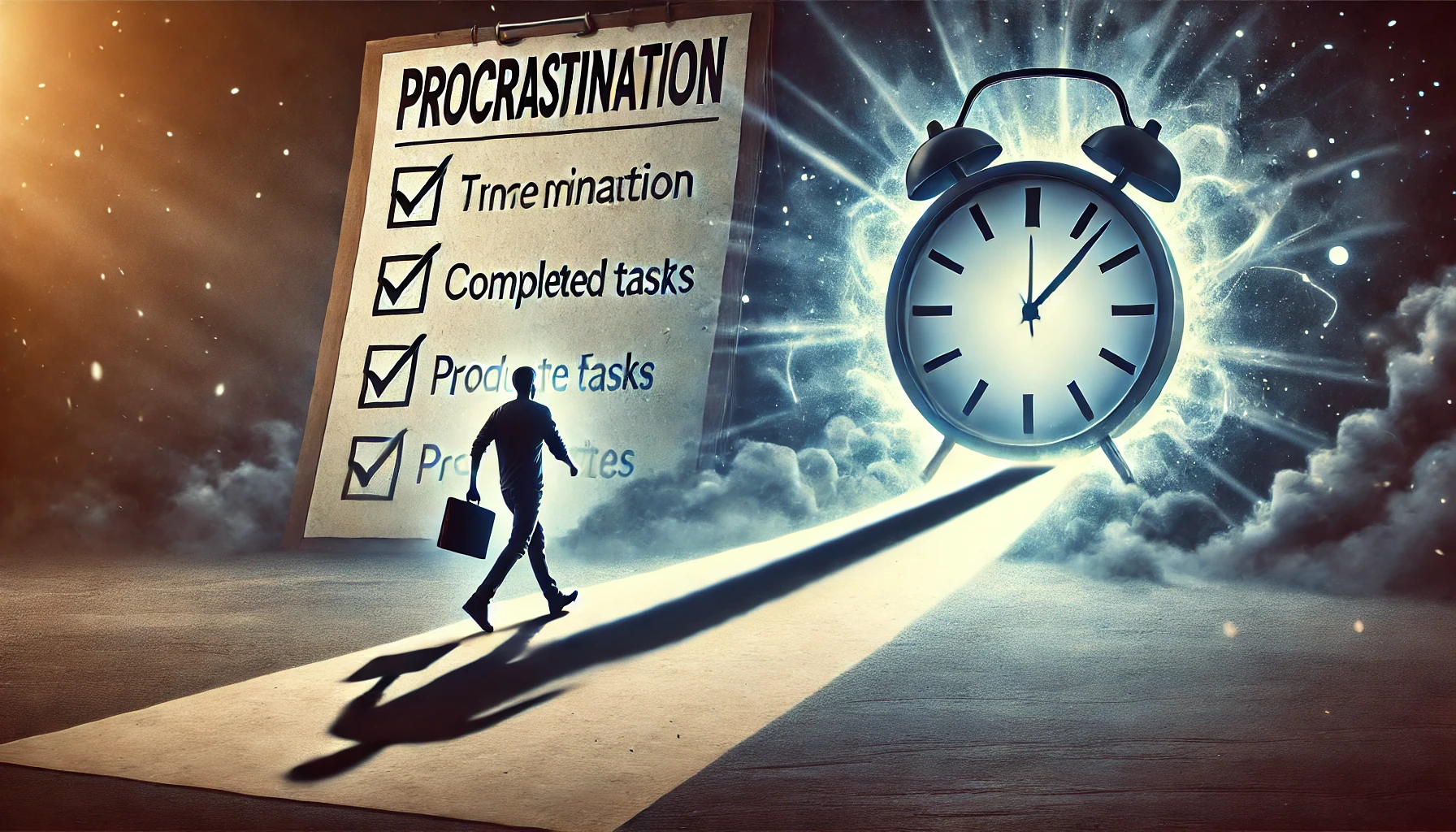Procrastination is one of the biggest obstacles to success and personal growth. Whether it’s delaying work, avoiding responsibilities, or struggling with motivation, procrastination can hold you back from achieving your full potential.
The good news? You can train your brain to take action and become more productive with the right strategies.
In this article, we’ll explore effective ways to stop procrastinating and boost productivity.
1. Identify Why You Procrastinate
Before overcoming procrastination, you need to understand what’s causing it.
Common Reasons for Procrastination:
🔄 Fear of failure – Avoiding tasks due to self-doubt
📉 Lack of motivation – Not feeling excited about the task
🤯 Feeling overwhelmed – The task seems too big or complex
🎮 Distractions – Social media, TV, or phone notifications
Tip: When you catch yourself procrastinating, ask: “Why am I avoiding this task?”
2. Use the 5-Minute Rule
Getting started is the hardest part, so trick your brain into just starting.
How the 5-Minute Rule Works:
⏳ Commit to working on a task for just 5 minutes
🚀 Once you start, momentum will make it easier to continue
💡 After 5 minutes, you can choose to stop—but most likely, you won’t
Tip: Action creates motivation—not the other way around!
3. Break Big Tasks into Smaller Steps
Feeling overwhelmed? Chunk the task into smaller, manageable steps.
How to Make Tasks More Manageable:
✅ Write down each step (e.g., instead of “write an article,” start with “brainstorm topics”)
🏆 Celebrate small progress to stay motivated
📅 Set a deadline for each mini-task
Tip: Progress fuels motivation—even small steps count!
4. Remove Distractions from Your Environment
Your surroundings influence your ability to focus and work efficiently.
How to Create a Distraction-Free Workspace:
📵 Put your phone in another room or on silent mode
🚪 Work in a quiet space or use noise-canceling headphones
🖥 Close unnecessary tabs on your computer
Tip: Fewer distractions = faster task completion.
5. Set a Specific Time to Work on Tasks
Instead of saying, “I’ll do it later,” schedule exactly when you’ll do it.
How to Make Time for Productivity:
📅 Use a calendar or planner to block out time
⏰ Set a timer for deep work sessions (e.g., 25–50 minutes)
🏃 Treat it like an important appointment you can’t skip
Tip: A clear schedule removes the need for last-minute motivation.
6. Use the “Eat the Frog” Method
This technique helps you tackle the most difficult or important task first.
How to Apply It:
🐸 Identify your biggest, most challenging task
🚀 Do it first thing in the morning before other distractions
✔ Once it’s done, the rest of your day feels easier
Tip: Getting the hardest task out of the way reduces stress and boosts motivation.
7. Reward Yourself for Finishing Tasks
Your brain responds well to rewards, making you more likely to take action.
Effective Reward Strategies:
🎬 Watch an episode of your favorite show after completing a task
☕ Take a coffee break once you finish an important step
🏆 Set a bigger reward for reaching major goals
Tip: Pair work with a reward to make productivity feel enjoyable.
8. Use Accountability to Stay on Track
It’s easier to procrastinate when no one is watching.
Ways to Add Accountability:
👥 Find an accountability partner to check in with
📅 Share your goals with a friend, coach, or online group
📖 Track your progress in a habit journal
Tip: Knowing someone else is expecting results makes you more likely to take action.
9. Change Your Mindset About Productivity
Procrastination often comes from perfectionism or a negative mindset.
Mindset Shifts for Productivity:
🧠 Focus on progress, not perfection
🔄 Reframe tasks as opportunities to learn
🌟 Remind yourself: “Done is better than perfect.”
Tip: You don’t need to feel motivated—you just need to start.
10. Build Consistency with Small Daily Actions
The key to lasting productivity? Consistency over intensity.
How to Stay Consistently Productive:
📌 Work on tasks at the same time each day
🔄 Focus on small, daily progress instead of big bursts of work
📊 Track your productivity to see long-term improvement
Tip: Good habits turn productivity into a lifestyle, not just a temporary effort.
Final Thoughts
Procrastination isn’t about laziness—it’s about habits and mindset. By using small tricks like the 5-minute rule, breaking tasks into steps, and rewarding yourself, you can train your brain to be more productive and take action faster.
Start today by choosing one procrastination-busting strategy, and watch your productivity skyrocket!

